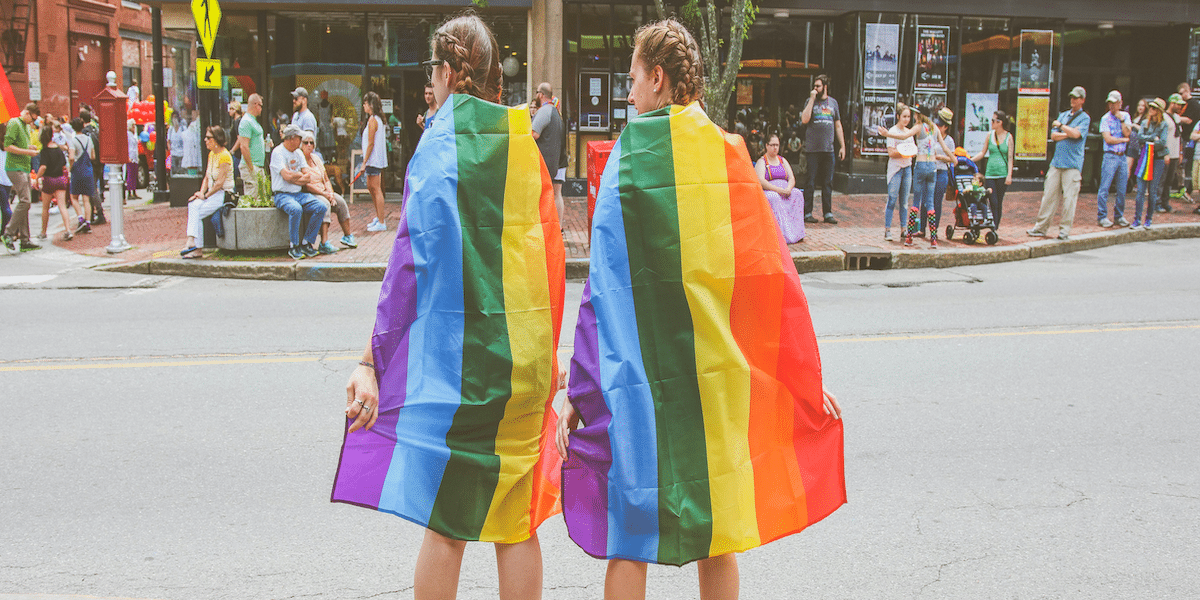Image commercially licensed from Unsplash
Bridging the Gap in Mental Health Care through Understanding and Affirming Gender Diversity
As the world celebrates Pride Month, it is crucial to address the escalating mental health needs of non-binary and transgender individuals. With mental health challenges reaching an all-time high within this community, psychotherapists are urged to prioritize gaining gender competence. Recognizing that gender is not a specialty but a fundamental aspect of human experience, this training equips mental health professionals to provide inclusive and affirming care to all individuals.
Sarah Burgamy, Psy. D., a renowned expert in gender competence, emphasizes the significance of therapists acquiring the necessary skills to effectively support non-binary and transgender clients. She asserts, “Gender competence is not an optional skill for psychotherapists but an essential component of providing quality mental health care. Understanding and affirming diverse gender identities is crucial to creating a safe and inclusive therapeutic environment.”
To meet the growing demand for gender competence training, Therapy Wisdom offers a free therapist gender orientation webinar titled “Everything You Wanted To Know about Gender-Competence But Were Afraid to Ask! Or, Who Says Gender-Competent Mental Health is a Specialty?” This comprehensive training equips therapists with the knowledge, sensitivity, and language needed to deliver gender-affirming care.
In light of the pressing mental health needs of non-binary and transgender individuals, here are key points that underscore the importance of gender competence in psychotherapy:
- LGBTQ+ people have faced persecution in the US since its colonization, including death, violence, exclusion, and humiliation.
- Homosexuality was a federal offense in many countries until the 1960s.
- In the US, it was legalized in a few areas in 1961, and nationwide only since 2003.
- June 28 marks the anniversary of the Stonewall Uprising led by Marsha P. Johnson in 1969.
- The American Psychological Association (APA) listed homosexuality as a mental illness until 1973
- The AIDS epidemic fueled anti-gay stigma on a national and global scale during the 1980s and 1990s.
- Gay marriage was prohibited in the US until 2015 (legalized in Massachusetts in 2003).
Additionally:
- 28% of LGBTQ youth have reported facing homelessness or housing instability at some stage in their lives.
- LGBTQ+ youth experiencing housing instability face significantly higher odds, ranging from two to four times, of reporting mental health challenges such as depression, anxiety, self-harm, suicidal ideation, and suicide attempts compared to their counterparts with stable housing.
- LGBTQ+ people are nine times more likely to be victims of hate crimes than non-LGBTQ+ people.
- LGBTQ+ youth have a more than twofold higher likelihood of reporting persistent feelings of sadness or hopelessness compared to their heterosexual peers.
- Transgender youth encounter additional disparities, as they have double the likelihood of experiencing depressive symptoms, contemplating suicide, and attempting suicide compared to cisgender lesbian, gay, bisexual, queer, and questioning youth.
- A 2022 report from The Trevor Project found that only 37% of LGBTQ youth identified their home as an LGBTQ-affirming space.
- Discrimination, including labeling, stereotyping, denial of opportunities or access, and verbal, mental, and physical abuse, contributes significantly elevated risk of developing PTSD compared to heterosexual and cisgender.
During Pride Month, the importance of gender competence training becomes even more prominent. Therapy Wisdom’s course page, “Living in a Nonbinary World,” offers additional resources and insights for therapists seeking a deeper understanding of non-binary and transgender experiences.
As we celebrate Pride Month and strive for a more inclusive society, it is crucial for psychotherapists to embrace gender competence as an integral part of their practice. By participating in gender competence training, therapists contribute to a more affirming and supportive mental health landscape for individuals of all gender identities.
To access the free therapist gender orientation webinar, please click “Everything You Wanted To Know about Gender-Competence But Were Afraid to Ask! Or, Who Says Gender-Competent Mental Health is a Specialty?“
As mental health needs among non-binary and transgender individuals reach unprecedented levels, fostering an understanding of and providing affirming care for diverse gender identities is of utmost importance. By prioritizing gender competence, psychotherapists contribute to a more compassionate and inclusive world for all.
















